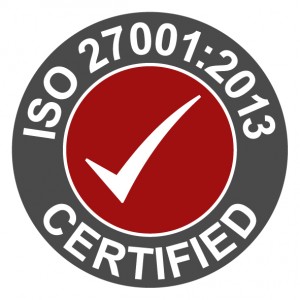By Keith Tilley, Executive Vice President, Global Sales & Customer Services, Sungard Availability Services
The IT landscape is becoming even more complex. It seems every year businesses are confronted with more issues and potential pitfalls to navigate around – not only to remain competitive, but to avoid loss of reputation and customer trust.
Upcoming legislation like the EU Data Protection directive will mean more pressure to secure mission-critical data and CIOs must ensure they do everything in their power to protect customer information. It’s the same story in the public sector: with ministers under increased scrutiny thanks to the 2015 election, mistakes and data losses will simply not be tolerated.
Alongside increased pressure on governance and compliance, organisations are expecting IT departments to make a greater contribution to business objectives – difficult when so much time and resources are tied up simply keeping the lights on.
The top six trends shaping enterprise IT in 2015:
1. Increased Value in Services:
The cost of raw infrastructure is already plummeting thanks to price-wars between the biggest providers so customers now look beyond raw infrastructure for value.
But with many IT departments moving away from the traditional maintenance model and looking to demonstrate business value through innovation and a focus on the application-layer, organisations no longer have the expertise in-house.
Recent research shows a rise in the number of businesses turning to MSPs(1). With IT priorities shifting from reducing costs to creating agile, flexible work environments, businesses will look for technology partners capable of helping them to deliver their IT strategy as well as keeping the lights on.
2. Investing in Orchestration
With their traditional role shifting, we will start to see CIOs throw out the outdated ‘command and control’ model of infrastructure governance. Instead, IT leaders will embrace data centre orchestration technologies that offer seamless infrastructure performance with data moving freely across hybrid IT infrastructures.
This will allow CIOs to continue to pull away from the ‘dirty’ infrastructure work, focusing on demonstrating real value to the business and delivering a competitive edge.
3. Increased data compliance pressure
Companies’ data protection and compliance policies are coming under increased scrutiny and this will only intensify with new EU laws on data regulation coming in 2017. These will significantly increase businesses’ responsibility for critical data with potentially heavy sanctions for mishandling, or failing to take every step possible to protect it. This ruling will greatly impact business models based on use or management of data such as cloud, Bring-Your-Own-Device and datacentre storage.
We will see more debates around whose responsibility this is. MSPs should prepare for a huge influx of queries from customers about their data so a thorough understanding of the new regulation will be crucial. 2017 might seem far-off but the radical legal changes will require organisations to work hard over the next two years to have a chance of complying and avoiding substantial fines.
4. The general election
With politicians already limbering up for the election, IT service providers need to ready themselves for the imminent debate. Austerity will continue, with the government looking to reduce spend dramatically while simultaneously demonstrating value to the public.
And thanks to the sensitive nature of government data, vendors will need to jump through hoops regarding infrastructure considerations and information security classifications. For smaller Independent Software Vendors this could be a problem and it’s one we’ll see solved through high profile partnerships with MSPs that provide not only the technology, but also the accreditations needed to bid successfully for government contracts.
5. The rise of Desktop as a Service
2015 will create even greater demand for Desktop as a Service (DaaS). Employees’ expectations are rising and with more and more ‘Generation Y’ workers entering the workforce, IT departments are finding it increasingly challenging to keep pace with technology demands(2). For some millennials, the tech package combined with flexible working practices is a major factor when considering potential employers. This trend is only set to grow, especially with further adoption of flexible working laws.
All employees now expect to access critical data and key applications from any location or device and companies need to ensure they make headway towards providing this.
6. Coping with Cloud Complexity
With over three-quarters of UK organisations formally adopting at least one cloud-based service, cloud is now mainstream. However, while the cloud initially promised to cut IT complexity, many CIOs have found themselves with a new set of challenges. Many early cloud adopters rushed in and only looked at the short-term benefits so now find themselves caught up in an intricate network of vendors, none of which have integrated clouds.
We’ll see businesses looking to extricate themselves from multiple IT environments – streamlining their estate as they understand that cloud computing is not a technical achievement, but a tool to deliver a specific business outcome.
Forward-looking CIOs will see that the key to successful cloud deployments is responsibly consuming cloud alongside the business’s other physical and virtual environments. Hybrid IT will precede truly integrated Hybrid Cloud, and may, indeed, be essential to it.
Download Sungard AS’s ‘CIO Perspectives on Digital Disruption’ report by IDG Market Insight
(1) IDG Market Insight, CIO Perspectives on Digital Disruption: 45% of CIOs would explore the possibility of working more closely with hosting and MSPs
(2) IDG Market Insight, CIO Perspectives on Digital Disruption: 72% CIOs cite support for remote and/or mobile working as very or extremely important

